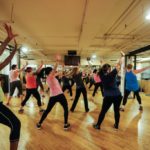By Tammy Chen, D.D.S. NY TIMES
When I reopened my dental practice in early June, the tooth fractures started coming in: at least one a day, every single day that I’ve been in the office.
“How’s your dental practice?” a friend of mine asked, brow furrowed, concern evident on her face.
I’ve seen this look a lot recently. Since the onset of the pandemic, with a citywide shutdown and social distancing measures firmly entrenched, more than a handful of friends and family members have presumed I must be on the brink of closing. But I let her know that I am busier than ever.
“Really?” she asked. “How’s that possible?”
“I’ve seen more tooth fractures in the last six weeks than in the previous six years,” I explained.
Unfortunately, that’s no exaggeration.
I closed my midtown Manhattan practice to all but dental emergencies in mid-March, in line with American Dental Association guidelines and state government mandate. Almost immediately, I noticed an uptick in phone calls: jaw pain, tooth sensitivity, achiness in the cheeks, migraines. Most of these patients I effectively treated via telemedicine.
But when I reopened my practice in early June, the fractures started coming in: at least one a day, every single day that I’ve been in the office. On average, I’m seeing three to four; the bad days are six-plus fractures.
What’s going on?
One obvious answer is stress. From Covid-induced nightmares to “doomsurfing” to “coronaphobia,” it’s no secret that pandemic-related anxiety is affecting our collective mental health. That stress, in turn, leads to clenching and grinding, which can damage the teeth.
But more specifically, the surge I’m seeing in tooth trauma may be a result of two additional factors.
First, an unprecedented number of Americans are suddenly working from home, often wherever they can cobble together a makeshift workstation: on the sofa, perched on a barstool, tucked into a corner of the kitchen counter. The awkward body positions that ensue can cause us to hunch our shoulders forward, curving the spine into something resembling a C-shape.
If you’re wondering why a dentist cares about ergonomics, the simple truth is that poor posture during the day can translate into a grinding problem at night.
Second, most of us aren’t getting the restorative sleep we need. Since the onset of the pandemic, I’ve listened to patient after patient describe sudden restlessness and insomnia. These are hallmarks of an overactive or dominant sympathetic nervous system, which drives the body’s “fight or flight” response. Think of a gladiator preparing for battle: balling his fists, clenching his jaw. Because of the stress of coronavirus, the body stays in a battle-ready state of arousal, instead of resting and recharging. All that tension goes straight to the teeth.
So what can we do?
You’d be surprised how many people are unaware that they’re clenching and grinding. Even patients who come into the office complaining of pain and sensitivity are often incredulous when I point it out. “Oh, no. I don’t grind my teeth,” is a refrain I hear over and over again, despite the fact that I’m often watching them do it.CORONAVIRUS SCHOOLS BRIEFING: It’s back to school — or is it?Sign Up
Awareness is key. Are your teeth currently touching? Even as you read this article? If so, that’s a sure sign that you’re doing some damage — your teeth shouldn’t actually touch throughout the day at all unless you’re actively eating and chewing your food. Instead, your jaw should be relaxed, with a bit of space between the teeth when the lips are closed. Be mindful, and try to stop yourself from grinding when you catch yourself doing it.
If you have a night guard or retainer, devices that keep the teeth in proper alignment and prevent grinding, try popping them in during the day. These appliances provide a physical barrier, absorbing and dispersing pressure. As I often tell my patients, I’d much rather you crack a night guard than crack a tooth. Your dentist can custom make a night guard to assure proper fit.
And since many of us will be continuing to work from home for months, it is imperative to set up a proper work station. Ideally, when seated, your shoulders should be over your hips, and your ears should be over your shoulders. Computer screens should be at eye level; prop up your monitor or laptop on a box or a stack of books if you don’t have an adjustable chair or desk.
Consider, too, that in our new home offices, it’s not uncommon to roll out of bed, find a couch, then sit for nine hours a day. Try to mix it up with some standing, whenever possible, and incorporate more movement. Use each and every bathroom break, or phone call, as an opportunity to take more steps, no matter how small your home or apartment might be.
At the end of the workday, I advise my patients to — excuse the very technical, medical term here — “wiggle like a fish.” Lie down on the floor on your back, with your arms extended straight above your head, and gently wiggle your arms, shoulders, hips and feet from side to side. The goal is to decompress and elongate the spine, as well as release and relieve some of that tension and pressure.
If you’ve got a bathtub, consider taking a 20-minute Epsom salt soak in the evening. Focus on breathing through your nose and relaxing, rather than thinking about work, scrolling through emails, or contemplating your kids’ back-to-school schedule (easier said than done, I know).
Then, right before bed, take five minutes to quiet your mind. Close your eyes, suction your tongue to the roof of your mouth, and breathe in and out through your nose, in and out through your nose. It’s a decidedly low-tech solution, but deep breathing is one of the most effective ways to stimulate the vagus nerve, which controls the body’s parasympathetic nervous system. A counterpart to the fight or flight response, the parasympathetic nervous system triggers the body’s “rest and digest” mechanism, slowing the heart rate, lowering blood pressure, allowing for more restful, restorative sleep. The more relaxed your body, the more likely you are to wake up with less tension in the jaw. That means less grinding at night.
Teeth are naturally brittle, and everyone has tiny fissures in their teeth from chewing, grinding and everyday use. They can take only so much trauma before they eventually break. Think of a wall that has a tiny spider crack that, with weathering, can become bigger and bigger until it becomes a gaping hole. We want to prevent any added stress from grinding that could cause these microscopic cracks to propagate into larger cracks and, ultimately, a catastrophic failure requiring root canal, a crown or other major dental treatment.
If you haven’t already done so, make an appointment with your dentist. Stay up on your six-month screening and cleaning schedule.
And if you do nothing else, get a night guard.







